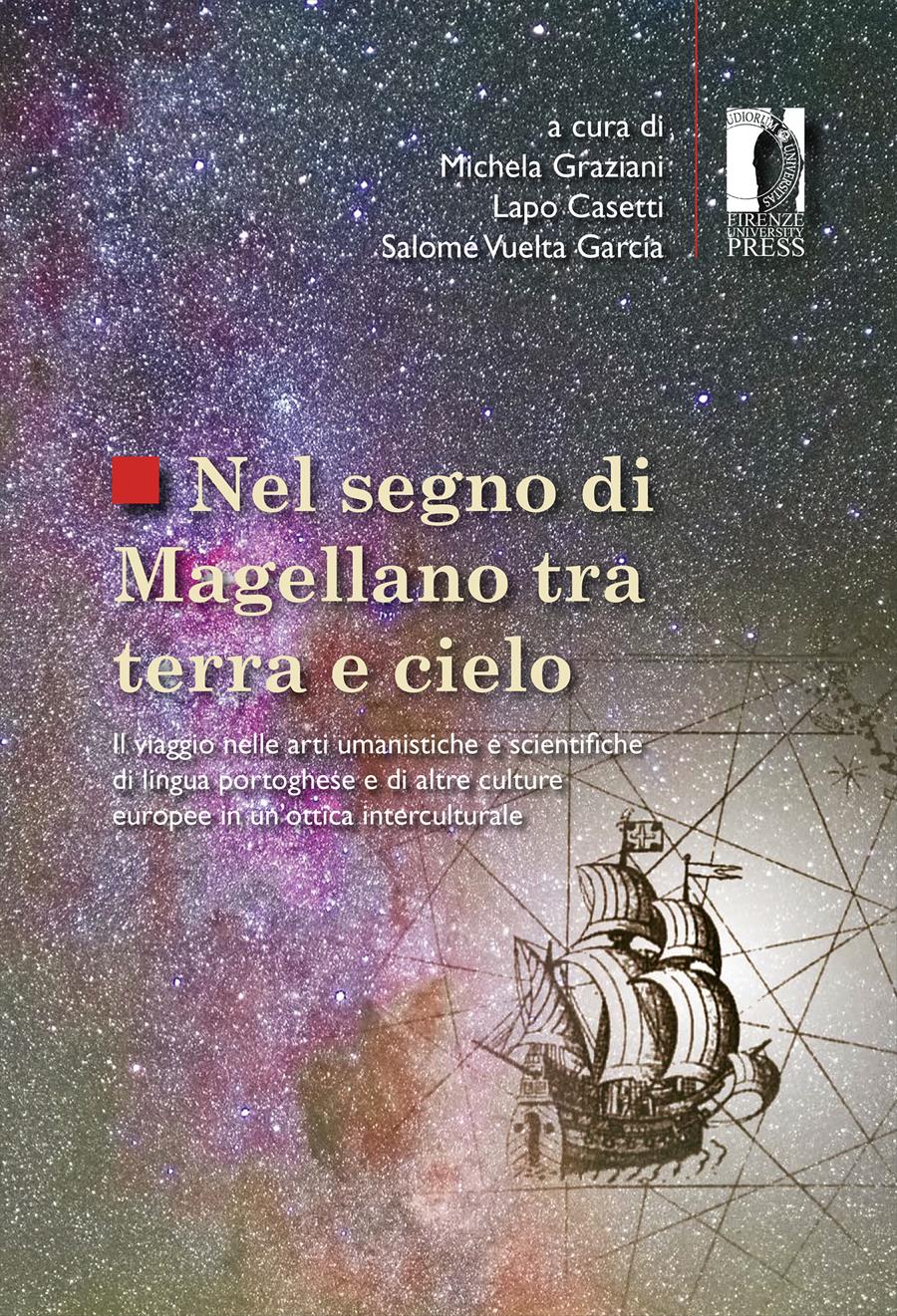- Nel segno di Magellano tra terra e cielo
- Edited by Michela Graziani, Lapo Casetti, Salomé Vuelta García
Erranze poetiche e geografiche nei poeti del Gharb al-Andalus
- Adalberto Alves
- © 2021 Author(s) |
- CC BY 4.0
- DOI: 10.36253/978-88-5518-467-0.06
The arab poetry is born among the wandering bedouins of the desert. The long odes (qasidat), were born to be recited in the camp, at night, under the stars and around the fire. The ode includes always a section named nasib wich intention is to describe the erratic course of the desert rider in search of his beloved woman. On the other hand, throughout centuries and with rare exceptions, the social conditions of arab poets were precarious. This meant that they were obliged to wander between courts to find patrons, in order to guarantee means of subsistence. These two circumstances, together with the hazards of existing politics, determined the erring matrix of life of the ancient arab poets: most of them, despite their outstanding talent, were compelled to being mainly vagrant panegyrists.
- Keywords:
- Bedouin,
- Desert,
- Poetry,
- Wandering,
- al-Maqqarî. 1967. Analectes sur l’Histoire et la Littérature des Arabes d’Espagne, édition par R. P. A. Dozy et al., vols. I, II. Amsterdam: Oriental Press.
- al-Ma’arrî. 1988. Rets d’Éternité, édition originale de la traduction française établie par Adonis, et A. W. Minkowski. Paris: Fayard.
- al-Mutannabî. 1994. La Solitude d’un homme, choix, traduction de l’arabe et présentation par J-J. Schmidt. Paris: éditions de La différence.
- Alves, A. 1996. Al-Mu’tamid- Poeta do Destino. Lisboa: Assírio e Alvim.
- Alves, A. 1998. O meu coração é árabe. Lisboa: Assírio e Alvim.
- Alves, A. 2017. Istmos do terror, do amor e algo mais. Lisboa: Imprensa Nacional-Casa da Moeda.
- Arioli, A. 1992. Islario Maravilloso. Madrid: Julio Ollero Editor.
- Boigues, F. P. 1972. Ensayo bio-bibliografico sobre los Historiadores y Geógrafos Arabigo-Españoles. Amesterdão: Philo Press.
- Falk, A. 1964. Visto para a Arábia. Lisboa: Estúdios Cor.
- Ibn Bassâm ax-Xantarinî. 1939. Adh-dhakhîra fî mahâsîn ahl al-jazîra, I-1. Cairo.
- Juberías, J. H. 1996. La Península Imaginaria. Madrid: Consejo Superior de Investigaciones Cientificas.
- Knappert, J. 1985. Islamic Legends. Histories of the Heroes, Saints and Prophets of Islam. Leiden: E. J. Brill.
- Khawam, R. R. 1995. La Poésie Arabe – des origines à nos jours. Paris: Phébus.
- Lebling, R. 2010. Legends of the Fire Spirits. Londres: I. B. Tauris.
- Picard, C. 1997. L’ Océan Atlantique Musulman. De La Conquête Arabe à l’Époque Almohade Navigation et Mise en Valeur des Côtes d’al-Andalus Et Du Maghreb Occidental (Portugal-Espagne-Maroc). Paris: Éditions UNESCO.
- Zeghidour, S. 1982. A poesia Árabe Moderna e o Brasil. São Paulo Brasiliense.
Chapter Information
Chapter Title
Erranze poetiche e geografiche nei poeti del Gharb al-Andalus
Authors
Adalberto Alves
Language
Italian
DOI
10.36253/978-88-5518-467-0.06
Peer Reviewed
Publication Year
2021
Copyright Information
© 2021 Author(s)
Content License
Metadata License
Bibliographic Information
Book Title
Nel segno di Magellano tra terra e cielo
Book Subtitle
Il viaggio nelle arti umanistiche e scientifiche di lingua portoghese e di altre culture europee in un’ottica interculturale
Editors
Michela Graziani, Lapo Casetti, Salomé Vuelta García
Peer Reviewed
Number of Pages
492
Publication Year
2021
Copyright Information
© 2021 Author(s)
Content License
Metadata License
Publisher Name
Firenze University Press
DOI
10.36253/978-88-5518-467-0
ISBN Print
978-88-5518-466-3
eISBN (pdf)
978-88-5518-467-0
Series Title
Studi e saggi
Series ISSN
2704-6478
Series E-ISSN
2704-5919
